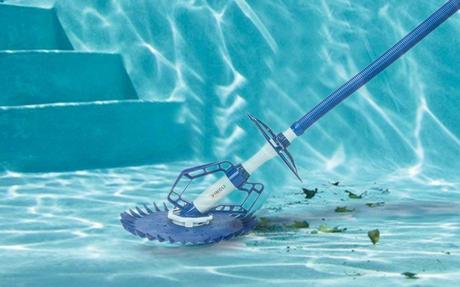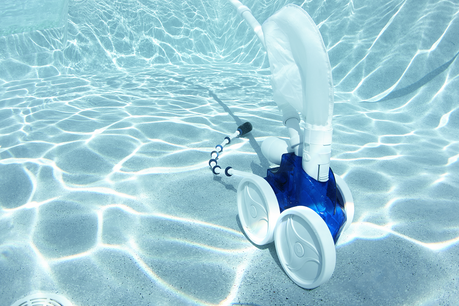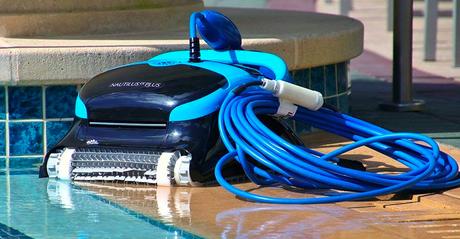If you're exhausted from cleaning your swimming pool, it's time to look for the right automatic pool cleaner to help you with the task.
Above ground and in-ground pools are built with various purposes and standards. Likewise, automatic pool vacuums come in several types and brands, which makes it even harder knowing which one to buy. Plus, there are factors you need to consider as well, including your pool dimensions and budget, to name a few.
So if you're in the market for an automatic pool cleaner and don't know where to start, this article for you. And this guide will help you find the appropriate pool cleaner for your background mecca.
Understanding The Different Types Of Automatic Pool Cleaners
Automatic pool cleaners are extremely convenient. They're also efficient and can provide you with exceptional overall pool cleaning experience. Moreover, you'll see a significant decrease in both your pool upkeep and energy costs, depending on which type you're utilizing.
There are three different types of automatic pool vacuums you can choose from. Each type comes with its own set of benefits and restrictions. Nonetheless, they're quite effective at what they do.

Suction pool cleaners, as the name suggests, depend on your pool system's suction side to clear it of unwanted debris and particles. Its operation is pretty manageable. You only need to connect your cleaner and the skimmer of your pool with a hose and it's good to go.
It will start cleaning by slowly moving around your pool and sucking up whatever goes in its way. The debris accumulated will go straight from the intake to the filter of your pool. Primarily, a suction-side pool cleaner serves as the extension of your pool's suction that cleans its surface.
What you'll love about this type is its simplicity. Likewise, it's very economical in comparison to other automatic cleaners. Additionally, you can utilize the majority of its models in either the above or in-ground pool. And once it's done with its cleaning cycle, you only need to get it out of your pool.
- The most inexpensive option
- It doesn't have any motor or parts that require replacement or repair so it's easy to maintain
- Simple to use
- Utilizes your pool's suction, meaning your electric bill will not hike up
- You need to set and remove it every time you need to use the cleaner
- The performance of your skimmer may reduce over time if your swimming pool only has one
- You need to clean the pump basket of your pool since it can quickly fill up
Pressure-Side Pool Cleaner

A pressure-side vacuum operates with the help of the water return port of your pool. You can also utilize a dedicated booster pump, which you can set to automatically turn on and off. Also, booster pump models come with a bag where debris is collected instead of utilizing your pool's filter system.
As the pool water is pumped back, it'll propel the cleaner across the pool's surface. As the water penetrates the unit, it will go down the cleaner's sweeper tail, thrust jet, and venturi. Its thrust jet acts like a propeller, which maneuvers and directs the pressure-side vacuum.
On the other hand, its sweeper tail is what will sweep all those little debris off the pool walls. It will then circulate within the water and into the filter. Meanwhile, the machine's venturi is where leaves and other larger particles are sucked up into an internal storage bag. You need to empty this once full.
The difference between this method and suction-side is that it doesn't transfer the debris straight to your pool's filtration. Nevertheless, a pressure-side is pretty much automatic since it'll do the entire cleaning for you.
- Excellent at cleaning pool surfaces
- It comes with internal filter bags, which helps prevent wearing out of your pool's filter
- Clogging is not an issue
- This automatic pool vacuum can serve you for many years
- More expensive than suction-side vacuums
- Some may need a dedicated pump
- Setting and maintaining it can be a bit more challenging

These machines, although under automatic pool cleaners, are considered as their own level these days. That's because unlike the other two methods, robot pool cleaners run independently and without any help from the pool system.
The robots rely on electricity and you don't need to attach it to your pool's filter or pump. Moreover, they have built-in cartridges where all dirt, debris, and particles collected are stored. On top of that, they can climb and clean steps, walls, and inclines.
Robotic pool vacuums are built with an internal software. This enables the device to learn, scan, and navigate the surface area of your backyard pool to come up with the most efficient cleaning path.
The smart cleaning gadget operates on time cycles. Each cycle usually lasts for about three hours. However, some units provide you with the option to run quicker cycles or add more time. The robot will shut off on its own once it has finished a cycle.
Every robovacs has a powerful suction while most feature scrubbing tools attached on their bottom. On the other hand, some units blast off dirt with a water pressure spray before vacuuming them into its cartridge. Once the cartridge of your robot is full, just get it out of your pool and hose down the particles left inside to remove them.
- Efficient and fast cleaning
- Excellent at picking up fine debris and dirt
- It will not add extra stress to the pump and filtration system of your pool
- Reduces the need to use chemicals
- Saves water
- Cost-effective and run on low voltage
- Requires little to no physical effort on your part
- Very convenient
- Higher initial cost
- You need to pay more for other handy features like remote control
Questions To Ask Yourself Before Purchasing An Automatic Pool Cleaner
To ensure you'll end up with the suitable pool cleaner for your needs, you need to ask yourself simple questions, such as the following:
What type of pool do I have?
Pools are either built above or in-ground. An above-ground pool has a much simpler shape. It is what people typically have in their backyard and can do with a cheaper robovac. Meantime, an in-ground pool is constructed by digging the ground and may need a heavy-duty model.
What's the purpose Of my swimming pool?
Is your pool for commercial or residential use? A residential robot pool vacuum is adequate for your backyard pool. But if you own a water theme park or swimming complex, opt for a cordless robot that can cover the overall area and diameter of the pools for longer periods.
What's the size of your pool?
Your pool size will play a big role in what kind of automatic pool cleaner you'll choose. Suction-side needs hoses and electricity. It'll also need the help of the filter and pump of your pool to run. This means that if you have a larger pool, it may take longer for it to complete the task, as well as consume a lot of energy.
However, using a robot cleaner can make the entire task lighter and faster. Aside from not requiring your pool's system to function, it also comes with powerful brushes and can come up with the most effective cleaning path.
What kind of debris usually gets in your pool?
Another thing you need to understand is the sorts of debris that goes into your pool and the amount the cleaner needs to remove. Robovacs are known to handle almost anything. While suction vacuums can get fine sand and particles, they may have issues with handling leaves and other larger debris.
Do I go for convenience or cost?
One of the reasons why you'll get yourself an automatic cleaner is to make your life hassle-free. But sometimes some issues may arise in terms of setup and upkeep of both your pool and the cleaner. This is especially true for units that utilize booster pumps. Robovacs may be expensive but their operation is simpler. Nonetheless, make sure to do your research and read online reviews first to ensure that the machine you'll get doesn't have any hidden flaws.
Lastly, you need to consider your budget. This is vital since the cost of automatic cleaners vary massively. A simplistic suction unit comes at a bargain price in comparison to the more advanced robotic pool vacuum. But as tempting as its price is, you may need to spend extra if it doesn't satisfy your pool cleaning needs. The upfront cost of a robot may hurt your wallet a bit, but it'll pay for itself in the long run.

